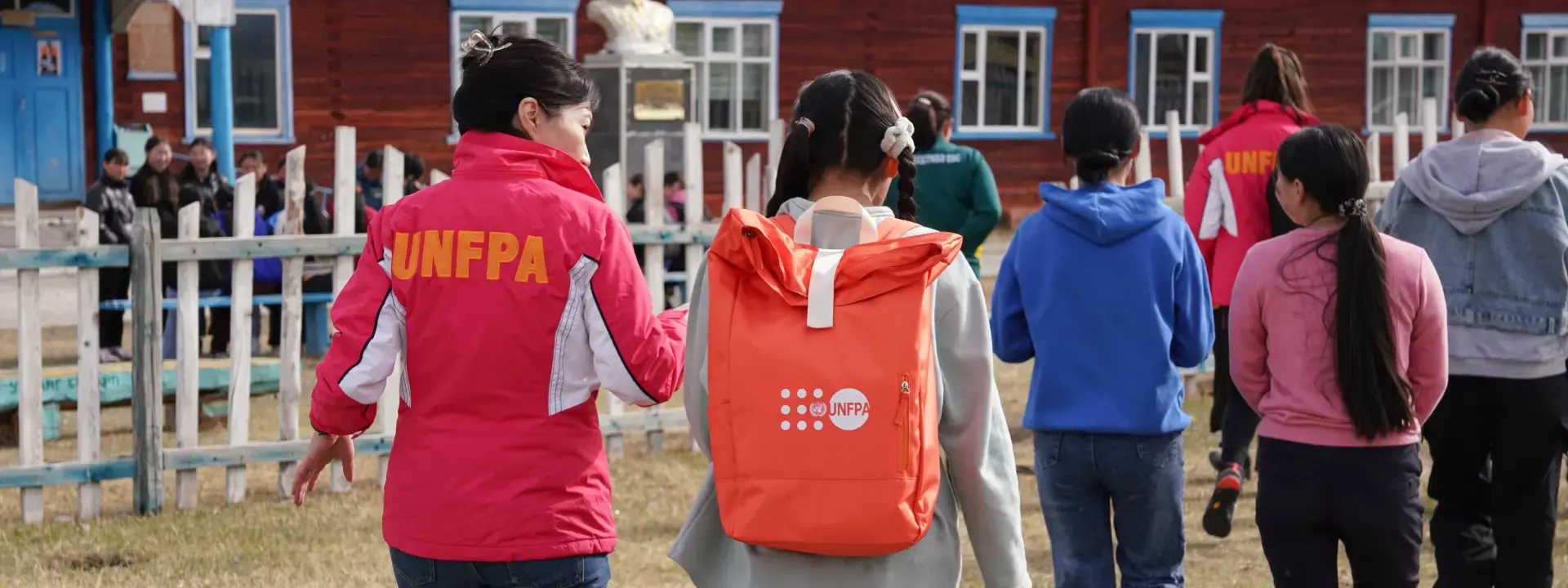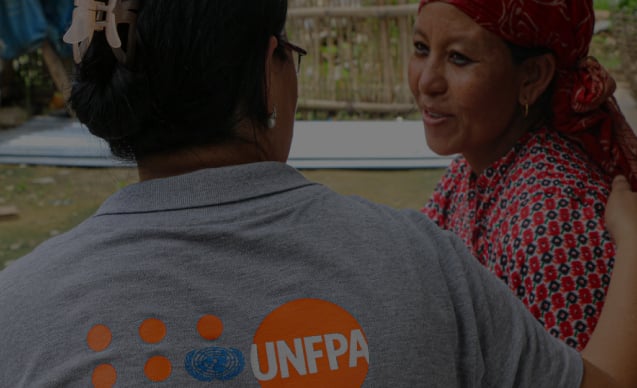UNFPA in Mongolia
UNFPA Mongolia began supporting the Government of Mongolia in the late 1970s providing equipment and training to the Central Statistics Office to undertake the Population and Housing Censuses of 1979 and 1989. Support for maternal and child health began in the early 1990s and included capacity building of medical personnel and the provision of medical equipment and supplies including modern contraceptives.
In 1992 the first comprehensive Country Programme delivered by the Government of Mongolia in partnership with UNFPA began, focusing on family planning education and services and the promotion of population data used to support the government’s development policies and programmes. The UNFPA Country Office was established in Ulaanbaatar in 1998 with a Representative in residence.
At the end of 2016, UNFPA’s 5th Country Programme which provided support in the areas of sexual and reproductive health and rights, youth development, gender equality and population dynamics came to a close. This coincided with the conclusion of a decade of support to the people of Mongolia to accelerate progress towards the Millennium Development Goals (MDGs). UNFPA’s support in the 5th Country Programme focused on the following three intentions: MDG 3 – equal rights for women and men; MDG 5 – reducing maternal mortality; and MDG 6 – combating HIV/AIDS.
By the end of 2015, Mongolia had achieved marked success, particularly in MDG 5, as Mongolia was one of only nine countries to successfully meet the target of reducing maternal mortality by 75 percent.
Today the UNFPA country office in Mongolia, led by an International Head of Office, has 20 employees and it’s operations cover all 21 provinces in Mongolia.
UNFPA is currently implementing its 7th Country Programme in Mongolia (2023-2027) to accelerate the achievement of the Three Transformative Results: end preventable maternal deaths; end the unmet need for family planning; end gender-based violence and harmful practices. The Country Programme will accelerate achievement of the three transformative results through: (a) disaggregated data, strategic partnerships and coordination to sharpen the focus on vulnerable populations; (b) scaling up successful practices and programme models to increase coverage and quality of sexual and reproductive health services in support of universal access; (c) systematically addressing inequalities and discriminatory gender and social norms; and (d) scaling up engagement of youth in decision making, participation.
The Country Programmee is aligned with the Government’s Vision 2050, the United Nations Sustainable Development Cooperation Framework (UNSCDF) 2023 2027, the 2030 Agenda for Sustainable Development, the ICPD Programme of Action, the ICPD+25 voluntary national commitments, and the UNFPA Strategic Plan, 2022 2025.
It will support actualization of national commitments in relation to the universal periodic review, the Convention on the Elimination of All Forms of Discrimination against Women (CEDAW), and the Convention on the Rights of Persons with Disabilities (CRPD), and other human rights instruments. Aligned to the Decade of Action, the programme will adopt an integrated, multidimensional, well coordinated approach to accelerate progress towards sustainable development, including SDGs 3 and 5.
Recognizing the risks posed by climate change, and in line with the UNSDCF and the Government’s commitment to the Sendai Framework for Disaster Risk Reduction, UNFPA works across the humanitarian development continuum to integrate life saving sexual and reproductive health services, including family planning, maternal health and gender based violence prevention and response, into disaster risk reduction and climate action through a resilience building approach.




